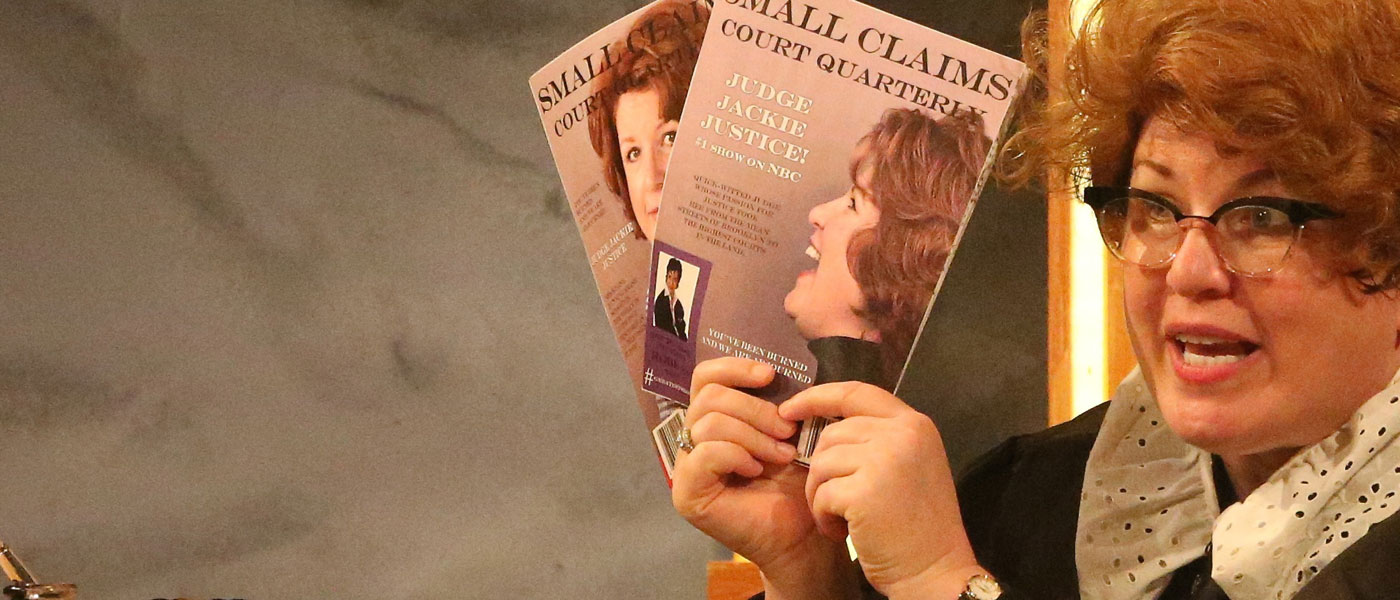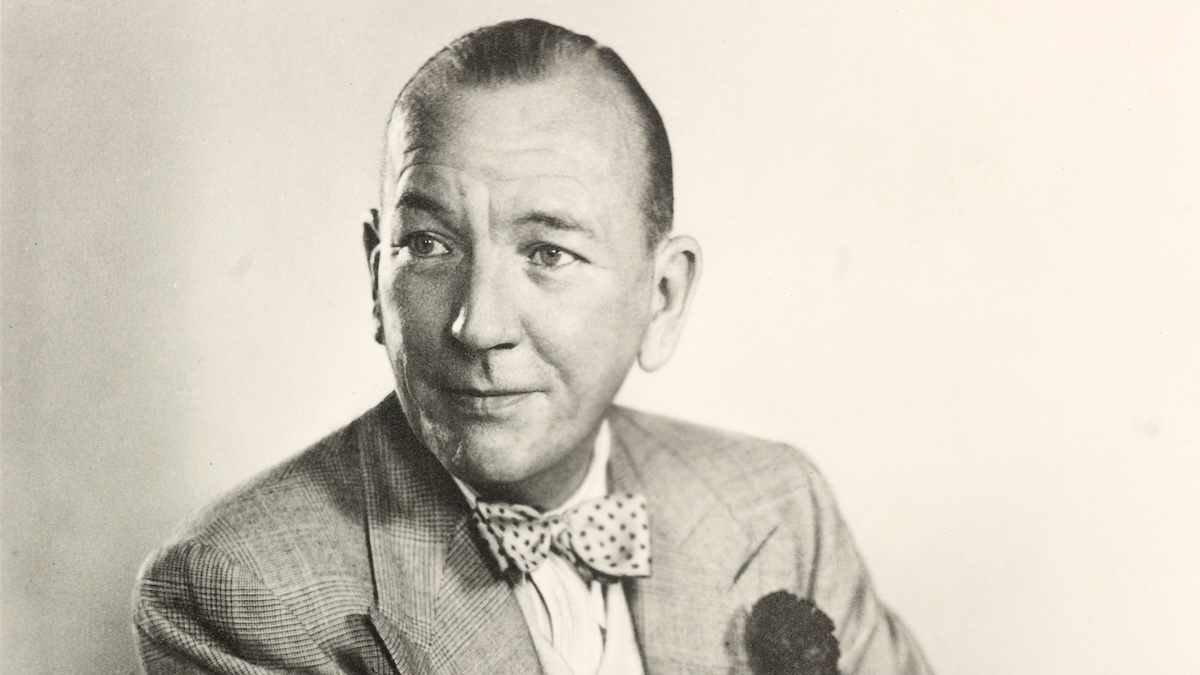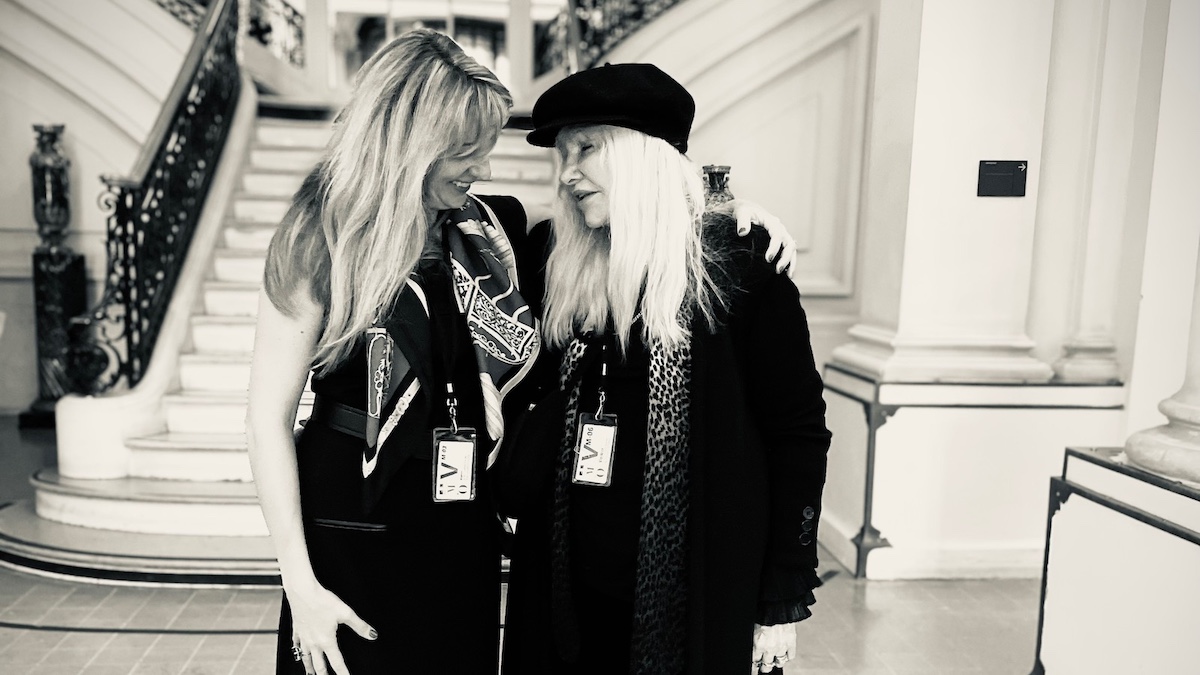
Sometimes a collaboration comes along that feels as comfortable as having dinner with a friend. A shared language, an understanding of the work, and an ease of conversation that puts aside any apprehension that normally influences the beginning of a new artistic relationship. This is what it is like working with Michael Kooman and Chris Dimond.
I had the great pleasure of directing Judge Jackie: Disorder in the Court this past summer at the Sharon Playhouse, where I am also Artistic Director. Like anyone involved in new musicals in NYC, I had known of Kooman and Dimond for years, and had looked forward to the day we could work together. I invited them to Sharon to work on the second production of their show. Its world premiere having been produced by Pittsburgh CLO. I knew that they had a tremendous time in Pittsburgh, and sometimes the “second production” of a show can be elusive to a new musical – somehow not living up to the hype and memories of the original production. I was more than a little nervous.
I watched as Michael and Chris began the writing process of crafting the piece for Sharon, not just recreating what they had done in Pittsburgh. They meticulously and creatively wrapped the show around our production – collaborative at every turn about ideas, changes, suggestions. Designers, actors, even our House Staff, remarked of Kooman and Dimond that they seemed to be writing the show specifically for us. What a terrific way to begin pre-production and preparation; they were every bit the writers that I had hoped I would find.
As rehearsals began, it became more and more evident how unique Michael and Chris are in their work process. Judge Jackie is a hilarious and zany comedy, and it also relies upon audience participation as a key component of its success. As we worked, something became wonderfully clear to me about their aesthetic. Something I had hoped was the case over the years that I had admired their work from afar. Something about truth.
As a director, I spend my life searching for truth and authenticity in all of the work I do. It is always hardest to find in musical comedies whose rules and circumstances exist far away from our own. It is impossible to find when writers are (often) more interested in audience laughter than they are in the truth of their show. It can be a very seductive thing for a musical – and one that can actually damage a show even through an audience’s seemingly positive response. As I always do, I braced for battle surrounding this issue, thinking I would have to fight for the narrative to win out over the laughter. For the heart and humans to emerge as more important than the jokes.
I was thrilled to find Michael and Chris not only adept at this navigation, but unflagging in their commitment to the rules of the show that they had crafted from the outset. They were somehow aware, in a way that can often times be tricky for writers, that a musical comedy that earns its laughter from the real behavior of its characters is far more successful than a little bit of comedy. The result of this commitment was felt by everyone on the team. Suddenly, actors who had been hired because of their comic abilities were relieved of the obligation to just “be funny,” and they were excited to dive into the minds of the people who inhabit this world. It was as if we were approaching the piece with the care and weight of a heavy drama – and the result was a hilarious, unconventional, wacky…and truthful world. Even though a director is the one charged with this kind of investigation on every project, it is impossible to do on a new musical comedy without the writers’ support.
All of this would have added up to a terrific experience without anything else: a great show, talented and collaborative writers, easy communication, and a truthful comedy. It’s every director’s dream. But there is one more thing that was special about Kooman and Dimond that set this experience apart from others.
I run a very open rehearsal room. Actors are encouraged to share ideas, to take impulses every time they have them, to experiment with all kinds of choices in the process. I very much believe that the best idea in the room should win, and that I should always allow for “play” before we get too specific too early. This atmosphere creates challenges in the “new musical” rehearsal room. Writers can sometimes get nervous early in the process that lines aren’t being delivered the way they were intended, jokes aren’t landing, or people have different ideas of character choices than what they wrote. To me, this is all part of the process. Part of allowing actors to own the choices they discover, even the ones that end up not being used in the play. To directors, this is a normal trajectory. To writers, it can sometimes be debilitating to see their work in its process and messy state. This is particularly true with comedies, especially if there is a particular cadence of a line that the writer wants.
Michael and Chris never flinched while we were working through this together. They never injected worry into the room. They never fidgeted nervously at their table. They never gave a line reading to me or the actors to try and get us to understand their intent. They remained committed to the freedom and time needed in the process. They were committed to a room of artists that were “finding” a show together – even though the two of them had already “found” a version of it in Pittsburgh. This allowed our room the safety it needed, and the open, free flowing conversations that are so crucial between artists (actors, writers, and creatives) in order to make a production together. And it earned them my deep respect.
What a joy it was to work with Kooman and Dimond. The experience is one I would jump at again at the first available moment. They are true artists, with a mastery of their craft combined with a point of view on the world, an ease and professionalism, a real sense of humor, and what I hope is an endless list of ideas for musicals they are yet to write together. I wish them congratulations on their Samuel French Next Step Award and I can’t wait to work with them again!

Noël Coward’s Travels

Kate Chopin in New Orleans: Mother-Daughter Author Duo Collaborate on Historical Book

